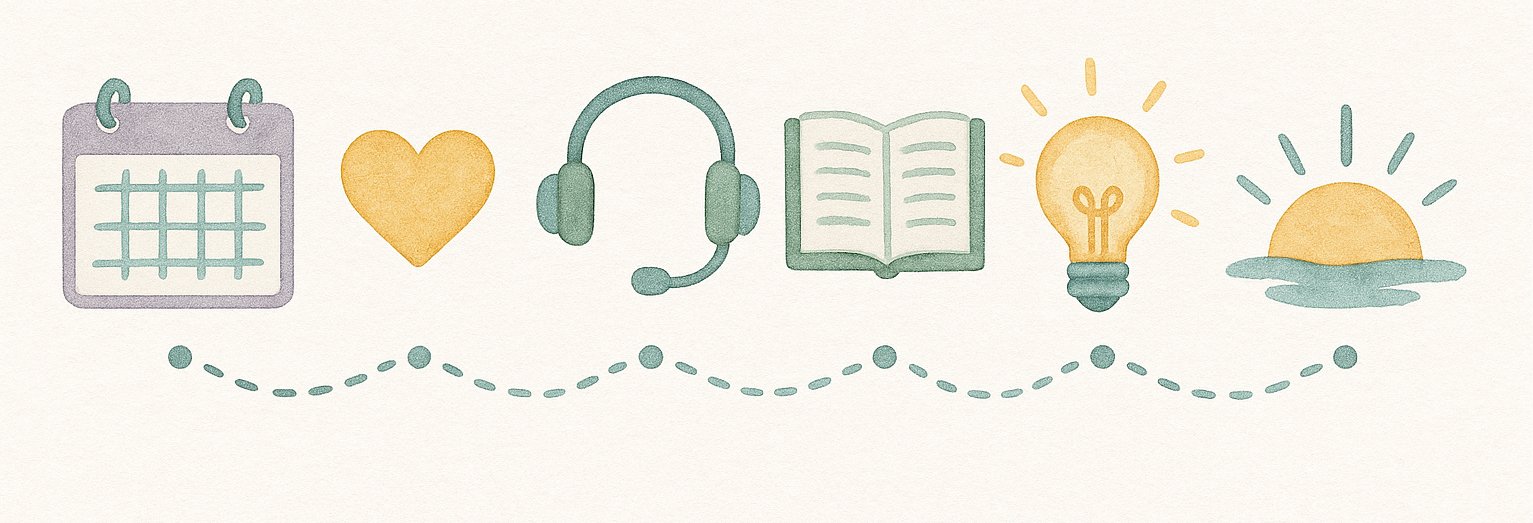In Person:
160 Christian St, Oxford, CT 06478
Online Therapy:
Connecticut, Maryland, Virginia and Florida. HIPAA. Secure Video. Convenient. In-Person in CT
Call: 802-578-3700 or Email: connect@mindbodywelltherapy.com
A holistic psychotherapy practice offering ketamine-assisted psychotherapy and integrative mental health care
160 Christian St, Oxford, CT 06478
Connecticut, Maryland, Virginia and Florida. HIPAA. Secure Video. Convenient. In-Person in CT
Call: 802-578-3700 or Email: connect@mindbodywelltherapy.com
Ketamine Risks and Benefits page created 6-14-2025 ~ Written by Lucrezia Mangione, LPC, LCPC, NCC, BC-TMH, DCEP

Discover what science and clinical evidence say about ketamine therapy. Learn how safe, supervised care—grounded in both medicine and therapy—can shape your experience. This guide explores the key ketamine risks and benefits to support you in making an informed, empowered decision about its therapeutic use.
This page focuses on the legal, therapeutic use of ketamine, commonly referred to as ketamine therapy, to cultivate better mental health and wellness. It does not cover recreational or unsupervised use.
Ketamine is a medicine doctors have used safely for over 50 years, originally as an anesthetic.
At lower, carefully controlled doses,
ketamine may help relieve symptoms of depression, anxiety, PTSD, and
chronic pain. This is particularly useful when other treatments haven’t
worked.
It supports neuroplasticity. This is your brain’s natural ability to form new pathways and shift out of rigid patterns. It enhances this natural potential and gives your brain an opportunity to respond to life differently with the possibility of creating a more sustainable emotional change.
Like any treatment, ketamine therapy involves a balance of risks and benefits. Understanding the full scope of ketamine risks and benefits requires looking at context. Specifically, how it’s used, who provides it, and what support surrounds it.
At Mind Body Well Therapy, we offer Ketamine-Assisted Psychotherapy (KAP). This is a structured, relational, and integrative process designed to support your mental health and healing while minimizing risk.
When ketamine is used with intentional therapy and support, clients
often report shifts that feel powerful, unexpected, or deeply relieving.
It’s not a magic pill but it may help break through emotional blocks or
resistance that have stalled progress in stand-alone traditional talk therapy.
Documented and client-reported benefits include:
Curious if these benefits could apply to your situation? Reach out.
Yes. Most side-effects are short-lived and manageable when ketamine is delivered in a clinical or therapeutic setting.
Common temporary side effects include:
These usually resolve within an hour or two. At Mind Body Well Therapy, we ensure your environment is calm, quiet, and secure whether in person or virtually supported at home.
⚠️ Important: You are never left alone during sessions.
When used responsibly and under medical and therapeutic supervision, ketamine carries a low risk of long-term complications.
However, research shows that frequent, high-dose, or non-medical use (especially recreational) may be linked to:
These risks are not typically seen in low-dose, prescribed ketamine used as part of structured therapy.
⚠️ Bottom line: Setting matters. So does frequency, dose, and oversight.

All forms of legally prescribed ketamine therapy have the potential to support healing. The best approach depends on your unique needs, mental health goals, and whether you prefer medical, therapeutic, or combined support. Your experience—and the depth of your results—can be shaped by how it’s delivered and who guides you through it.
While approaches may vary, the overview below outlines the most common ways ketamine therapy is administered.
This approach includes every phase of the therapeutic process—emotional preparation, self-administration of legally prescribed ketamine, and guided integration in a calm, supportive setting with a licensed therapist.
Clients use ketamine as prescribed at home while receiving virtual therapeutic support for preparation, real-time check-ins, and post-session integration. This option blends comfort with structure, especially helpful for sensitive clients.
Some clients receive infusions or injections in a clinic, then see their therapist separately for emotional processing and integration. This allows for flexibility in combining medical care with ongoing psychotherapy.
Small group and retreat settings offer another way to experience ketamine-assisted psychotherapy in a safe, structured environment. These formats are led by licensed professionals. They follow the same foundational elements of KAP, preparation, ketamine sessions, and integration. They also offer the added benefit of shared connection and community support.
These settings may include:
This option may be ideal if you’re seeking:
🧠 Whether individual or group-based, KAP is most effective when it's grounded in emotional safety, intentional guidance, and integrative care.
Focused primarily on symptom reduction, these clinics offer ketamine administration without emotional preparation or therapeutic follow-up. For some, this is enough—but others may benefit from additional support.
A prescription nasal spray approved by the FDA for treatment-resistant depression. It’s often administered in a medical setting without integrated therapy.
🧠 Studies show that combining ketamine with psychotherapy often leads to deeper insight, more effective emotional integration, and longer-lasting outcomes. For many, the medicine opens the door and therapy helps walk you through it.
We specialize in supporting highly sensitive, deep-feeling adults and others seeking meaningful emotional change. Whether you're navigating trauma, burnout, or simply feeling stuck, you're welcome here.
Our approach blends science-backed strategies with compassionate, attuned care. We integrate mind, body, and nervous system support to help you reconnect with clarity, calm, and inner strength.
In alignment with best practices for ketamine-assisted psychotherapy (KAP), we emphasize structure, safety, and integration. Here’s what you can expect from our care:

Step 1: Initial Consultation
We begin with a full
clinical assessment. You’ll also meet with an independent medical
provider who determines if ketamine is appropriate for you. They
prescribe the dose, if approved.
✅ If ketamine isn’t recommended, you’ll receive a full refund for the medical assessment.
Step 2: Preparation Sessions
We set the foundation for a meaningful experience. You’ll:
Step 3: KAP Session
You
take ketamine as prescribed by your medical provider. A trained
ketamine-assisted licensed psychotherapist remains present throughout,
providing grounded, non-intrusive support as you move through the
experience.
Step 4: Integration
Within a day or two, you meet with
your trained KAP therapist again to reflect, make meaning, and link
insights to your real life. You’ll identify a small, concrete action to
support long-term change.
🧩 Integration is where the healing solidifies. Without it, insights often fade.
It’s okay to have questions. That’s what we’re here for.
If you're exploring ketamine risks and benefits and wondering whether this path fits your needs, here are some signs that KAP might be a good match:
If you're still considering the ketamine risks and benefits and want more clarity, these frequently asked questions can help guide your next steps.
Yes when provided by licensed professionals in a structured, therapeutic container.
Some clients feel shifts early, even after 1–2 sessions. Others notice cumulative effects over a full series. There’s no one-size-fits-all timeline.
Most describe a calm, expanded, or floating state. You remain conscious, able to speak, and always in the presence of a supportive guide.

This page was based on the following peer-reviewed research and these credible resources:
Ketamine therapy is not typically covered by insurance. Medical consults may be covered by insurance. Sessions before and after the client’s self-administration of ketamine generally are covered because they are therapy sessions.
We offer transparent pricing and provide documentation for out-of-network reimbursement requests. Reach out and ask for more information.
We currently serve adults living in:

Mind Body Well Therapy, PLLC is a private practice founded by Lucrezia Mangione, LCPC, LPC, NCC, BC-TMH, DCEP. We offer brain-based, heart-centered psychotherapy for sensitive, stressed, and soul-seeking adults—including those navigating trauma, burnout, or feeling emotionally stuck.
We’re licensed to serve clients in Connecticut, Maryland, Virginia, and Florida, offering both in-person and virtual sessions depending on your location.
We also collaborate with therapists whose clients may benefit from ketamine-assisted psychotherapy (KAP) as an adjunct to their ongoing care. In these cases, the primary therapist continues their work, while we provide structured KAP sessions to support movement, insight, and healing.
At Mind Body Well Therapy, we emphasize structure, safety, and integration. Whether you’re seeking support for yourself or exploring options for someone in your care, we provide a grounded, compassionate space where healing unfolds—one session, one insight, one step at a time.
I’m Lucrezia, and I bring over 15 years of experience in integrative mental health care—blending neuroscience, somatic therapy, and compassionate, client-centered care. I’m honored to walk alongside those who choose this mental health healing work.
If you’re actively exploring the risks and benefits of ketamine therapy, let’s talk.
You deserve real information, honest support, and space to decide what works for you. Whether you're just curious or already considering ketamine therapy, we’re here to help you take the next step, gently.
You don’t have to navigate this alone. We’re here to help you decide with clarity, care, and real support.
Ready to take the next step? Let’s explore what support could look like—at a pace that feels right for you. There's no pressure. Just a chance to see whether this feels like a good fit.
Mind Body Well Therapy, PLLC is a private psychotherapy practice offering holistic mental health counseling, ketamine-assisted psychotherapy, and supportive services for adults navigating periods of emotional strain.
This website provides general information and is not intended for self-diagnosis or to replace medical or psychological care. For diagnosis or treatment, please consult a licensed professional directly.
Explore our privacy policy of services and disclaimer for more details. We're here to support you on your journey to well-being.
This content of Ketamine Risks and Benefits was authored by Lucrezia Mangione, LCPC, LPC, NCC, BC-TMH, DCEP. AI-assisted tools were used during the writing process to support clarity and organization. All professional insights and conclusions reflect her research on the subject, clinical training and experience.

Lucrezia Mangione supports people who feel anxious, overwhelmed, or worn down in building steadiness, clarity, and a deeper sense of aliveness. She also collaborates with therapists and helping professionals to support clients who feel stuck or stalled. Her integrative approach helps people feel calm, grounded, and more at home in themselves—living and working with greater ease and intention.